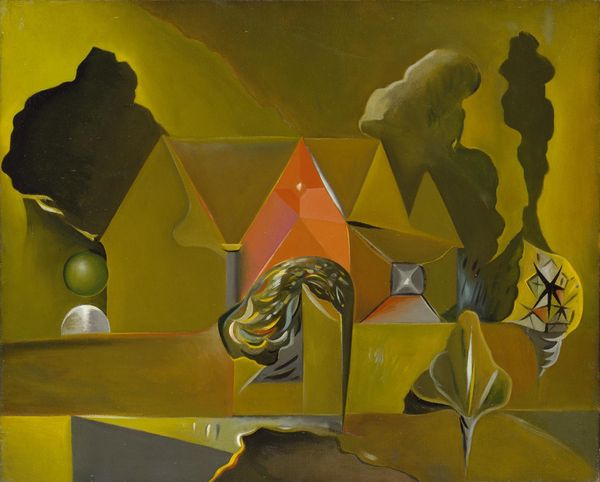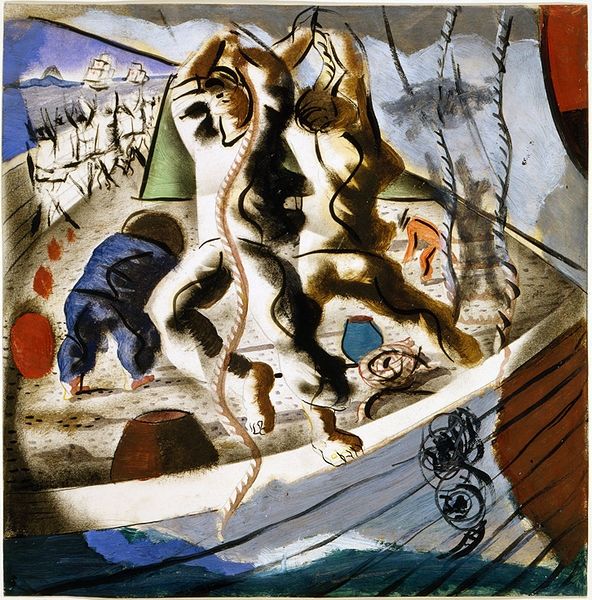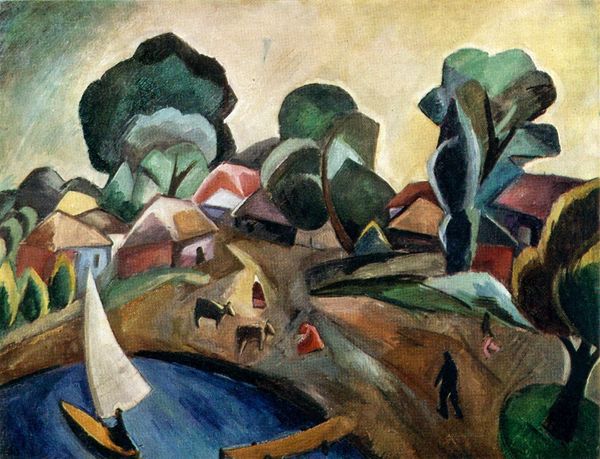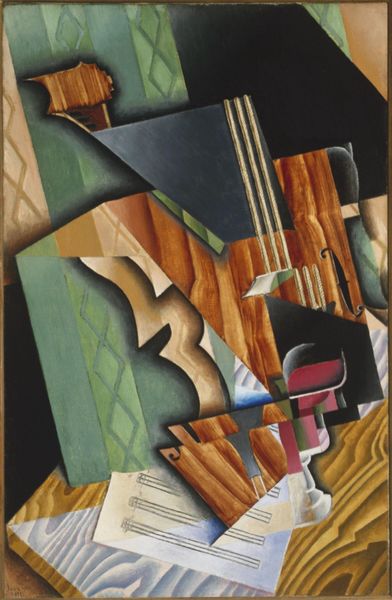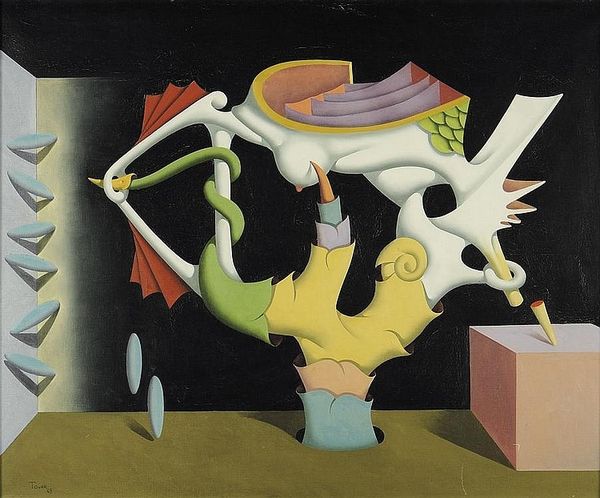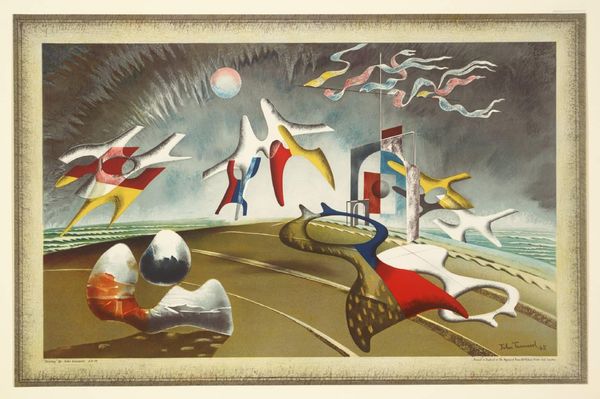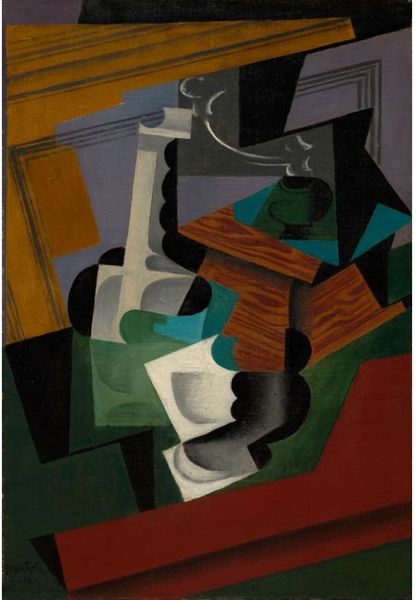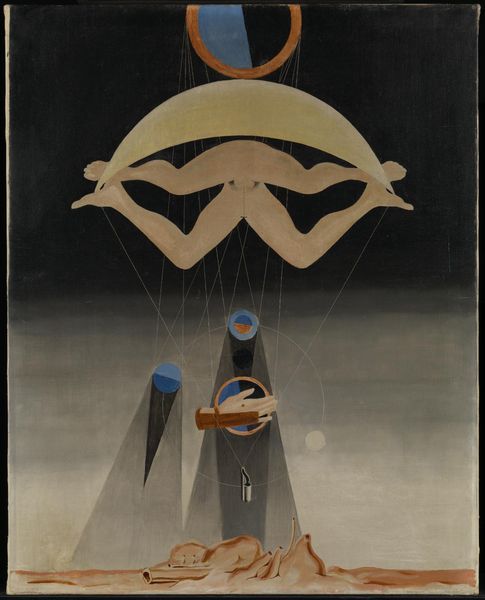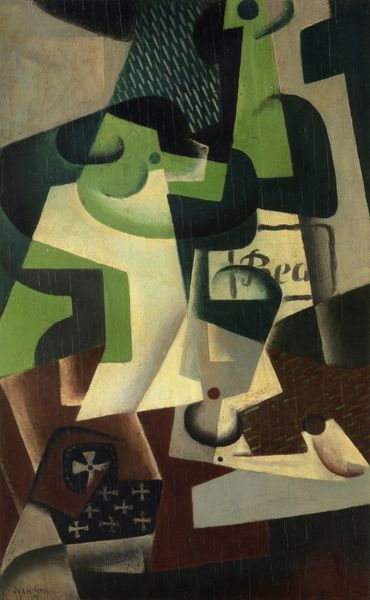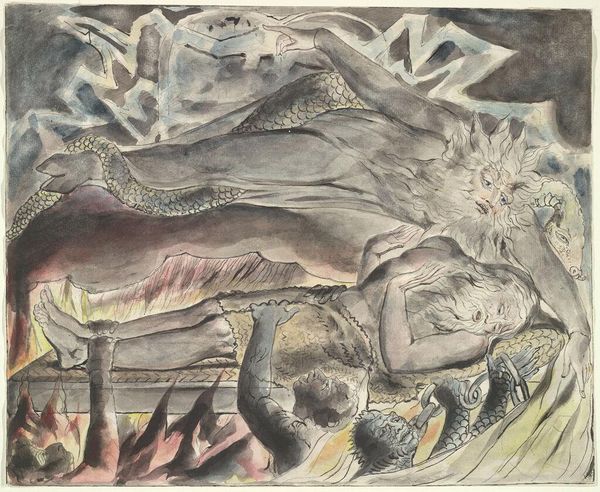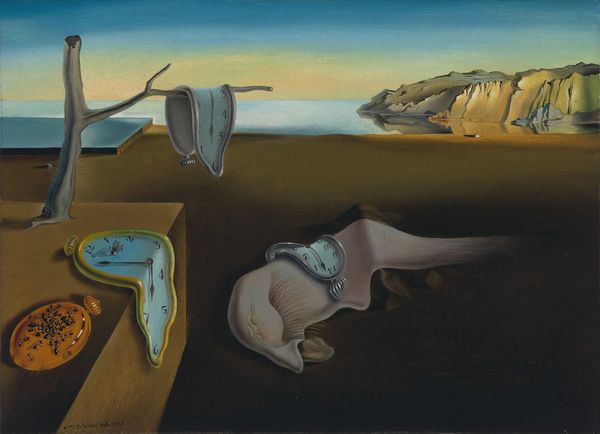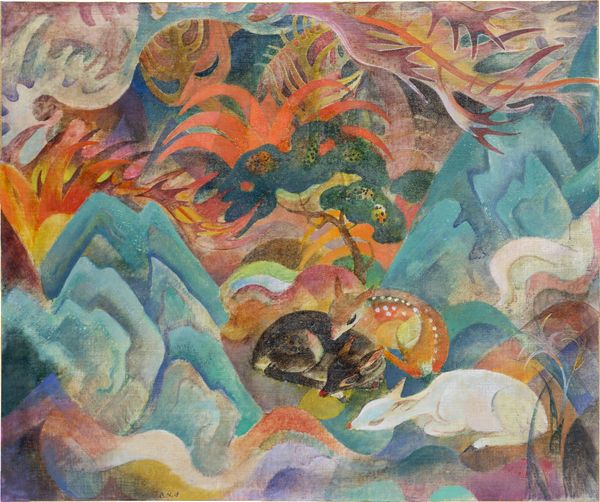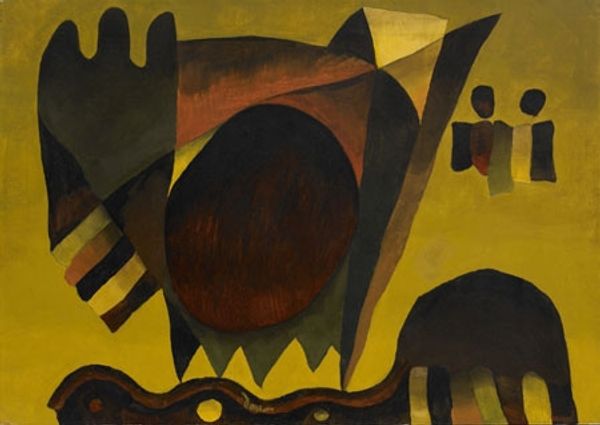
Dimensions: support: 762 x 635 mm frame: 915 x 765 x 64 mm
Copyright: © The estate of Leon Underwood, courtesy The Redfern Gallery, London | CC-BY-NC-ND 4.0 DEED, Photo: Tate
Editor: This is Leon Underwood's painting, "Casement to Infinity", currently residing at the Tate. It's a bizarre composition, almost dreamlike. What do you see in this piece? Curator: I see a potent challenge to conventional notions of beauty and mortality, particularly relevant in the interwar period. The skull, adorned with a butterfly, set against the backdrop of infinite possibility, speaks to the societal anxieties about death and rebirth. Editor: So, the objects aren't just randomly placed? Curator: Precisely. Consider the pipe, the egg, the seashell. These are symbols deeply rooted in the human experience, representing pleasure, potential, and our connection to the natural world. How might these intersect with the fractured landscape viewed through the "casement"? Editor: It feels like a commentary on how we perceive reality, especially after something traumatic like war. Curator: Exactly. It asks us to consider what remains, what we rebuild, and the illusions we carry forward. Editor: I'll definitely look at Underwood’s work with a different perspective now. Thanks! Curator: It is important to view it through an intersectional lens; power, privilege, and oppression are constantly represented in art.
Comments
tate 9 months ago
⋮
http://www.tate.org.uk/art/artworks/underwood-casement-to-infinity-t02323
Join the conversation
Join millions of artists and users on Artera today and experience the ultimate creative platform.
tate 9 months ago
⋮
After studying at the Slade in 1919, Leon Underwood embarked on a prolific career as a sculptor, painter and print maker, producing an eclectic body of work. In 1930 Underwood produced ten paintings which he described as metaphysical works, of which Casement to Infinity is one.
